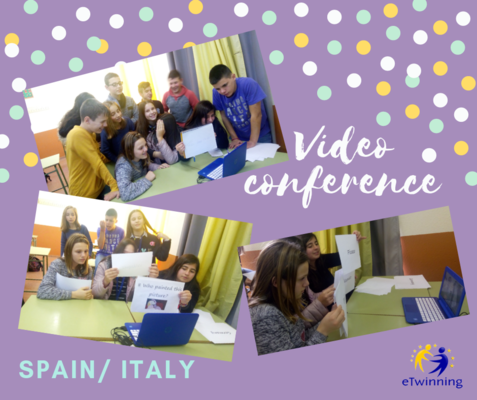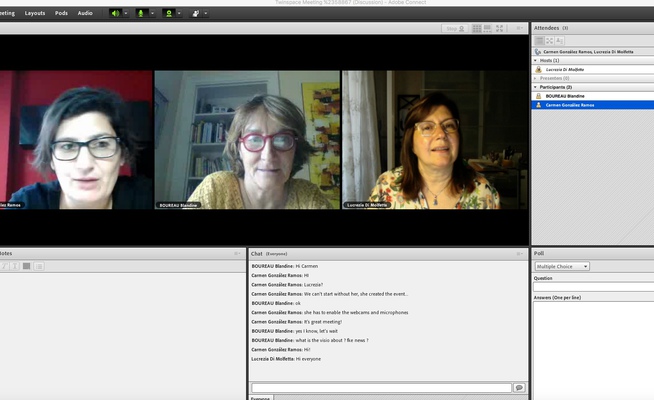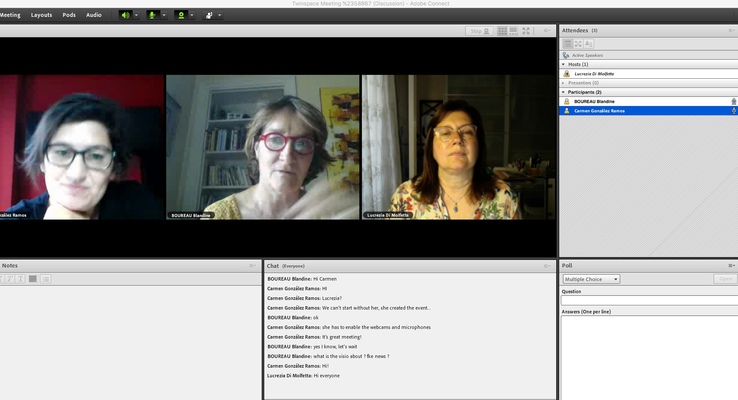1. OUR FIRST ONLINE MEETING

It was great to meet our partners from Italy
2. MEETING WITH THE JOURNALIST
On 30th May we organized an interview with a journalist at Monterisi school in Italy to discuss about fake news and their effects on our everyday life.
Our Spanish partner joined us in a videoconference.
Here's a short video of the event:
Our French partners asked the journalist some written questions.
The journalist gave them the following answers:
1)How is the journalist disturbed by data journalists?
Data journalism is an important branch of journalism due to the abundance of available information that needs to be processed and analyzed. Anyway, it’s not a replacement of traditional journalism, but an addition to it. Both traditional and data journalists have the same goal: providing information and analysis to help people to be correctly informed about important issues of the present. The first one goes among people to investigate and find news, the second one does the same kind of investigation but with different tools. It’s a new set of skills that journalism needs to develop because a journalist must know how to find, analyze and visualise a story from data, but I personally think that a good journalist should be a fair combination of data and word journalism.
2) How has your profession changed and how do you manage to select real and fake news?
The profession of a journalist is changed over the last years and it has become more difficult because there’s an overload of information and you need to be aware of what are the reliable sources to do your job at the best. There are some rules that a journalist can follow to understand if a news is trustworthy or not. I had a long conversation with the Italian students at Monterisi school and they have created a Decalogue with these rules for your project. But that’s not enough, because beyond fake news there is misinformation, which is based on partially true facts manipulated for specific purposes. The last one is much more difficult to spot.
3) Does checking fake news take a big part of your job?
Nowadays all news sites and newspapers have sections dedicated to “fact checking” and of course this is a task that requires a lot of time and specific skills. But our main goal is to provide useful and relevant information to citizens, in order to make them capable to make right decisions for their society. So the big part of our time as journalists should be spent finding news and facts that readers don’t know yet
3. TEACHERS' VIDEOCONFERENCE ON JUNE 20
At the end of the project teachers from Italy, Spain and France met online on 20th June to discuss about the strenghts and weaknesses of the project and to plan other future projects together.
It was an interesting meeting because we could share our ideas and evaluate the positive aspects of the activities we arranged during the project.


The main points discussed in our conversation:
1) Strenghts:
The topic was motivating for our students
They actually learned how to be safe on the Internet and mistrust fake news
The activities were funny and involving
The project partners got along very well during the project
2) Weaknesses
We could arrange more collaborative activities for the students to make the project more challenging
It was often difficult to find suitable times for arranging videoconferences because of the different timetables.
3) Good intentions
We definitely want to work together on a new project
We will carefully plan the project together in order to arrange as many collaborative activities as possible with our students
We will share our school timetables in order to plan our online meetings beforehand.
HAPPY ETWINNING EVERYBODY AND ENJOY YOUR SUMMERTIME!